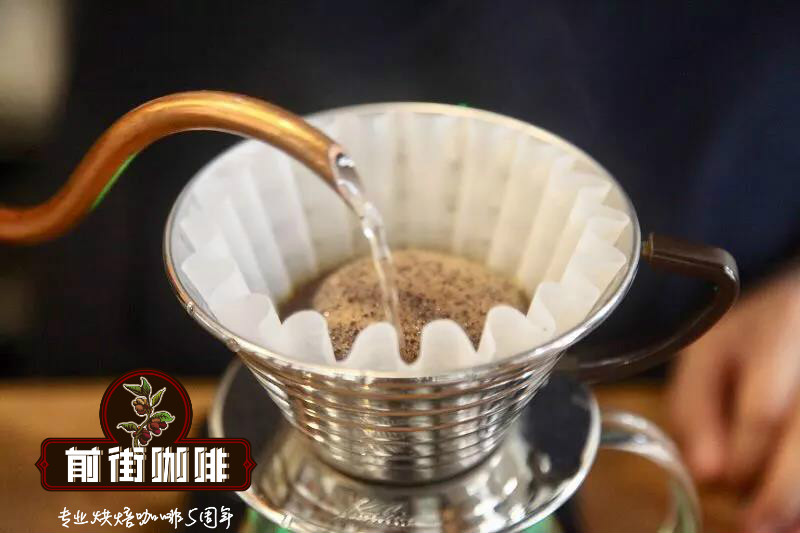What's the taste of Kenyan coffee? Introduction to the grading system of Kenyan Coffee

Professional coffee knowledge exchange more coffee bean information please follow the coffee workshop (Wechat official account cafe_style)
Kenya has been one of the leaders of the coffee industry since coffee beans traveled through the mountains from Ethiopia to Kenya. Coffee beans produced under the mountain terrain of Gaoyuan are generally mellow in taste, excellent in taste and pleasant in acidity. There is also a hint of flowers in the aroma, with aromas of lemon berries and wine in the finish.
In recent years, more and more people like to drink coffee, and they also know more and more about the taste, aroma and other aspects of coffee. In the past, we must have heard the older generation always say, "Coffee must not be sour!" "as long as coffee is sour, it is shoddy coffee!" The same kind of words. Of course, looking back from the current point of view, "sour coffee = inferior coffee" has long been an impractical and incorrect concept. On the contrary, more and more coffee fans have begun to prefer coffee with acidity, and even can't do without sour coffee from now on. Women, in particular, have a higher acceptance of acid.
Of course, this may also be due to the relationship between time and space, the early coffee refining technology is not as modern, the source is not transparent, perhaps mixed with bad flavor, unpicked beans and roasted into medium-shallow roasting, of course, the bad taste is more likely to be drunk clearly. In recent years, the popularity of boutique coffee has begun to promote the simple taste of black coffee, and more and more attention has been paid to the sour, fragrant, sweet, mellow and other flavors of coffee itself. On the contrary, the word "sour coffee" has become a representative of knowing how to taste coffee.
Africa has always been one of the best coffee producers in the world, and is famous all over the world for its charming acidity and aroma, and Kenya is certainly not absent. Kenya is a big coffee country in East Africa and one of the most important and irreplaceable producers, next to the Republic of Ethiopia, the original place of coffee in the world. Coffee farmers are generally highly educated, studying fine agriculture and growing top coffee. Coffee producers in Kenya are mainly divided into two types, the first type is large estates, and the other is the so-called "small farmers". However, whether they are large coffee farms or small farmers, the coffee beans produced by them have been refined, the vast majority will be transported to the official Kenyan coffee shop for unified grading identification.
The coffee bureau will first send samples of the coffee beans to be auctioned to interested buyers for trial, and hold an auction every Tuesday at the Nairobi Coffee Exchange Coffee Exchange in Nairobi, the capital of Kenya. Through a transparent auction mechanism and a dual-system parallel approach of official sales agents and independent sales agents, foreign buyers can also directly negotiate with corresponding producers to buy coffee. There is no need to go through the official auction board, so producers' hard work can be rewarded more fairly and equitably, without being exploited by the brokers in the middle. Because of this, coffee farmers are more willing to try their best to produce high-quality coffee beans in order to sell at a good price.
The history of coffee cultivation in Kenya dates back to the end of the 19th century. Coffee seeds were introduced from Ethiopia, a neighboring country in the north and the oldest coffee producing country in the world. At present, there are four common varieties: Bourbon, Kents, Typica and Riuri 11. Kenya's terrain is complex and varied, with highlands, deserts, canyons and grasslands. Coffee producing areas are spread throughout the central and southwestern and eastern original Michael areas at elevations of 1000 to 2500, such as Mount Kenya in the middle and Aberdare Zone in the west, Nyanza, Kasii and Bungoma in the west, and Kericho and Nakuru in the east. The vast majority of Kenyan coffee is "organically grown" without certification because of the use of improved planting techniques and the rare use of chemical pesticides or herbicides. Kenyan premium coffee (AA Plus, AA, AB, PB) are all washed, while low-grade products (non-washing 39th buni) are for local use only.
The grading system of Kenyan coffee is very special, which is based on "particle size", supplemented by "quality in the cup" and "weight". The following is the classification of Kenyan coffee:
Kenyan coffee grading instructions
AA grade with excellent quality (flavor, taste) in AA Plus (AA+) cup
AA particle size (Screen Size) 17 Murray 18 size
AB particle size (Screen Size) 15 Murray 16 size, accounting for the majority of production
C particle size (Screen Size) is smaller than that of AB.
TT blows lighter beans from AA and AB beans with an airflow filter.
T from C-grade beans, lighter beans blown by an airflow filter.
E Elephant Bean is a large mutant bean, also known as Elephant ear.
UG does not meet the above criteria
PB Peaberry, classified by appearance, independent of flavor weight
The lowest grade beans that are not washed by buni (Natural) are only for the domestic market of origin.
END
Important Notice :
前街咖啡 FrontStreet Coffee has moved to new addredd:
FrontStreet Coffee Address: 315,Donghua East Road,GuangZhou
Tel:020 38364473
- Prev

Flavors of Burundi in Africa
Burundi, located in the interior of Africa, has a land area of only 28,000 square kilometers, but 90% of the people whose main income is agriculture, of which coffee is the largest. Burundi's geographical environment is very suitable for coffee cultivation, bordering Rwanda in the north, Tanzania in the east and south, Congo (DRC) in the west and Lake Tanganyika in the southwest
- Next

Types and characteristics of Fine Coffee
Blue Mountain Coffee is made in Jamaica. Unlike other coffees, it is made from 180 degrees water. Features: it has a strong flavor, it perfectly combines the sour, bitter, sweet and mellow coffee together, the aroma is very rich, and with a certain fruit flavor. Manning Coffee is made in Sumatra, Indonesia, and is full of grains. Features:
Related
- Detailed explanation of Jadeite planting Land in Panamanian Jadeite Manor introduction to the grading system of Jadeite competitive bidding, Red bid, Green bid and Rose Summer
- Story of Coffee planting in Brenka region of Costa Rica Stonehenge Manor anaerobic heavy honey treatment of flavor mouth
- What's on the barrel of Blue Mountain Coffee beans?
- Can American coffee also pull flowers? How to use hot American style to pull out a good-looking pattern?
- Can you make a cold extract with coffee beans? What is the right proportion for cold-extracted coffee formula?
- Indonesian PWN Gold Mandrine Coffee Origin Features Flavor How to Chong? Mandolin coffee is American.
- A brief introduction to the flavor characteristics of Brazilian yellow bourbon coffee beans
- What is the effect of different water quality on the flavor of cold-extracted coffee? What kind of water is best for brewing coffee?
- Why do you think of Rose Summer whenever you mention Panamanian coffee?
- Introduction to the characteristics of authentic blue mountain coffee bean producing areas? What is the CIB Coffee Authority in Jamaica?

